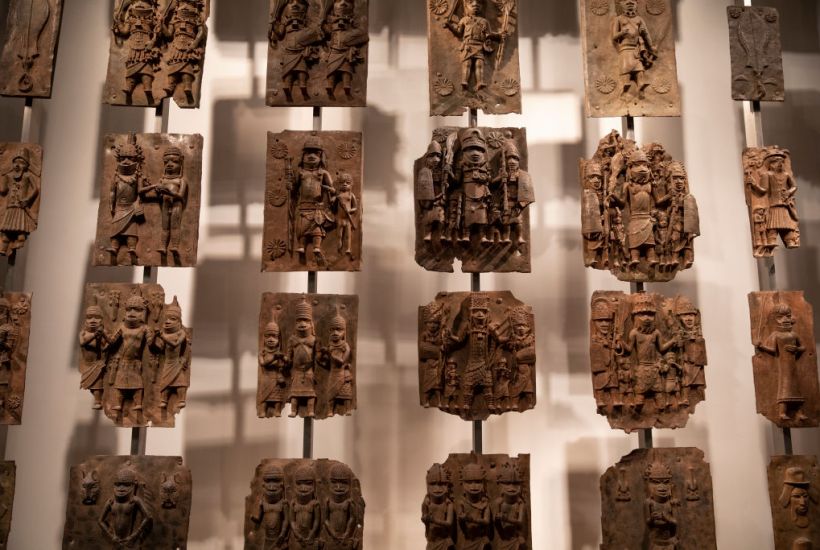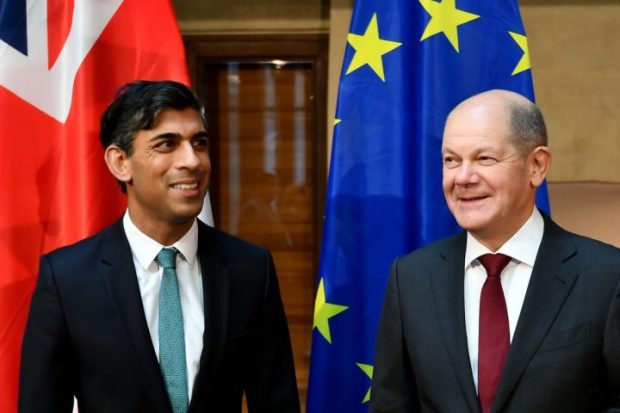Should the British Museum return its priceless collection of Benin Bronzes? For years, the museum has stood firm in its refusal to hand back artwork looted from the ancient kingdom of Benin, in what is now southern Nigeria. In doing so, it has defied the trend set by regional institutions in Britain, such as the university of Aberdeen. Earlier this year, the university confirmed that it would repatriate a bust of an Oba, or king of Benin, which it has had since the 1950s. As a result of refusing to take a similar stance, the British Museum has been heavily criticised – but there is a strong case to be made that its approach is the correct one.
Nobody knows for sure how many artefacts were taken by the 1,500 invading soldiers armed with the latest Maxim guns during their punitive raid in 1897. But six months on, the Bronzes were first put on display in London. They caused a sensation. From the start, their artistic value was obvious; several thousand were quickly snapped up, mostly by European museums, but as many as 6,000 ended up in private hands. One of these, an Oba’s head, recently sold for £10 million in 2016, double the price of another one just nine years earlier.
Given the circumstances under which they were acquired, there has naturally been great interest in getting them back. Until recently, this has met with little success. In 1977, when the Nigerian government asked the British Museum for the loan of an ivory mask depicting Queen Idia, mother to the legendary Oba Esigie (1504-50), they were rebuffed on the grounds that it would be subject to different climatic conditions and much greater humidity. This, it was claimed, might cause the ivory to shift and crack.
The Rhodes Must Fall movement, which started at the University of Cape Town in 2015 – and quickly travelled to the University of Oxford – has increased the clamour to return the Bronzes. Germany, which has the second-largest collection in the world of Bronzes, recently promised to return 1,200 objects. France’s president Emmanuel Macron has been similarly receptive to the idea that France should return all ‘objects taken by force or presumed to be acquired through inequitable conditions’ as soon as possible.
Yet the British Museum, with the largest collection of all (about 900 objects, of which some 100 are on permanent display), is holding out, even if the museum suggests it is amenable to the prospect of returning the items. But there is a good case to be made for leaving the bronzes where they are. The most obvious reason relates to their safety. Thefts from Nigerian museums are legendary, leading one minister of culture and information to bemoan in 1996 that ‘we are losing our cultural heritage at such an alarming rate that unless the trend is arrested soon, we may have no cultural artefacts to bequeath to our progeny.’
Even if the British Museum did agree to return the Bronzes, there is another dilemma: who exactly owns them? The current Oba claims that they belong to the people of a kingdom which doesn’t exist. This is at least partly why he is at loggerheads with Godwin Obaseki, the governor of Edo state, of which Benin City is the capital. The latter initially backed a new royal museum, but then appeared to change his mind in favour of another museum scheduled to open in 2025. The Oba has since appealed to the federal government to step in and take possession of the expected German consignment, a farcical notion given its track record in this regard, but a sign of the Oba’s desperation.
If there is a solution to be found in this messy and fractious debate, the argument made by Moyo Okediji, the Benin-based artist and academic, seems plausible. He said that the bronzes ‘caged, displayed on blocks and pedestals, or auctioned from hand to hand like the human cargoes which they followed across the Atlantic Ocean’ have been robbed of their spiritual essence, serving as they did a living deity. Okediji also thinks that returning them ‘is to pretend that such a reparation fully atones’ for an act of colonial outrage.
But if giving them back can’t undo the damage, it seems reasonable to make the case that the Bronzes – whether put on display in London or closer to where they were made – should be viewed as a vanished African kingdom’s gift to the world. <//>
Got something to add? Join the discussion and comment below.
Get 10 issues for just $10
Subscribe to The Spectator Australia today for the next 10 magazine issues, plus full online access, for just $10.



















Comments
Don't miss out
Join the conversation with other Spectator Australia readers. Subscribe to leave a comment.
SUBSCRIBEAlready a subscriber? Log in